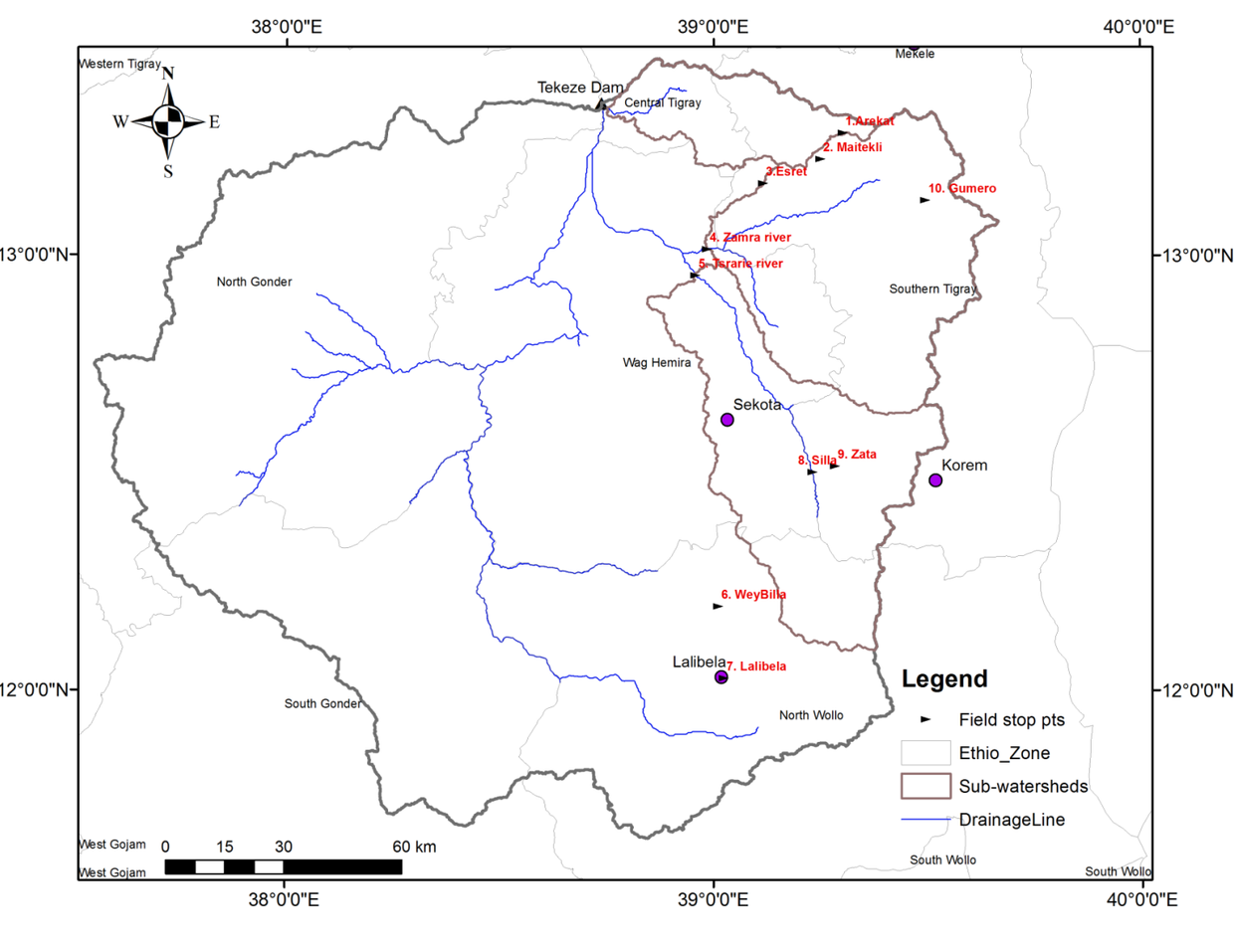A field visit was conducted during 12-14 February, 2018 in the Upper Tekeze Basin, together with the PhD candidates, and local promoters and supervisors. During the field excursion several areas were visited (Figure 1) and discussion made so as to enrich the PhD proposals of the candidates. The excursion covers from the highland to the lowlands of the Tekeze basin and as a result provides the opportunity to explore the broad range of climatological, hydrological, geological, land use and socio-economic variation in the basin.
The specific objectives of the field trip were:
- To expose the EENSAT PhD candidates to the EENSAT study sites,
- To give the PhD candidates a chance to discuss about their proposals with their local promoters and supervisors. Thus, to enable them to refine their PhD proposals based on the comments forwarded form the team and inputs from field observations,
- To observe and characterize the basin in relation to geology, geomorphology, soils, water and vegetation resources,
- Identify sediment source areas and types of geomorphic processes leading to sediment generation,
- To visit river gauging stations established by the Ministry of Water, Irrigation and Energy
During the three day field visits the students have discussed on a broad range of issues including hydrological, climatological, land use, watershed management, socio-economic, geological, geomorphological, livelihood and food security of the area. The discussions are made in line with EENSAT’s research interest and to explore researches that have been conducted before. During the excursion discussion was made at Lalibela with the following agenda:
- To consolidate the broad-range of issues discussed in the field to see how it can be fit into the objectives of the EENSAT project
- Assess how the students has observed the field excursion and how they fit-it into their PhD proposals,
- Request the PhD candidates to briefly present their PhD concept note. The participants thoroughly discussed on the concept notes based on the observed research gaps and the EENSAT project objective and provide valuable feedbacks
At the end the following points were concluded:
- This field observation help the PhD candidates on how to integrate the catchment variations/ characteristics into hydrological/climatological models,
- It was stressed that the PhD candidates should reviewing the various research background conducted so far in the watersheds,
- The importance of the concept of scale is stressed before actually starting the research work,
- Such multi-disciplinary team in field observation is appreciated for experience sharing to young researchers,
- Management practices and geology consideration in hydrological responses is not well explored in the basin,
- Over all, the field coordinators believed that the trip was successful and meets its objective.
The complete field report is available in the download section of this page.







